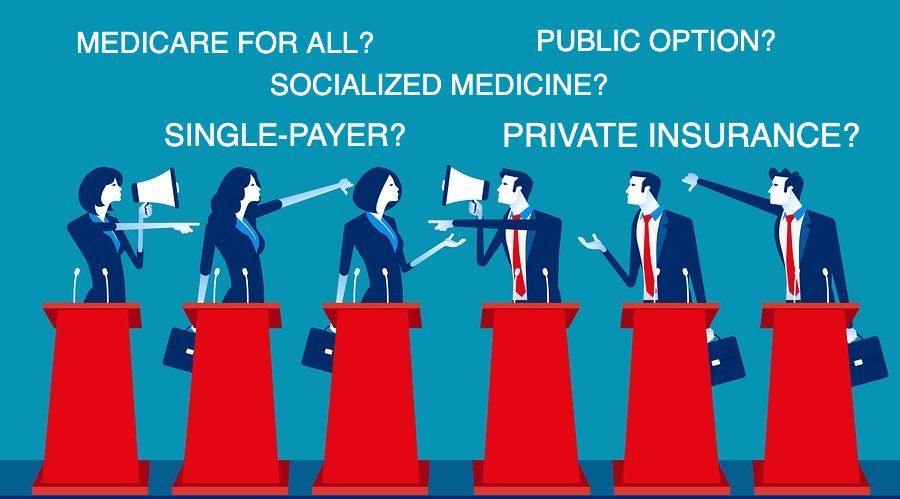TAKING THE PAIN OUT OF HEALTH INSURANCE
Key Terms Defined in Health Care Debate
Of the wealthy, developed nations in the world, the United States alone does not guarantee health care to its people. One in 10 Americans have no health coverage at all, and even for those who do have it, costs for health care are increasing. The United States' health care costs per capita is twice as much as other industrialized countries. Most Americans express support for plans to expand health coverage in public opinion polls. However, the health care debate has become somewhat muddied because the terms used to describe distinct proposals are often used interchangeably.
What is clear is that all of the following expansion proposals will cost the government, and therefore taxpayers, more money. Estimated amounts vary according to the proposal, but a health policy researcher at the University of California, Berkeley estimates that the cost of a universal coverage plan could cost the state of California over $17.3 billion.
The following is an explanation of some of the most common proposals and how they differ.
Public Option
A public option does not get rid of private insurance plans. Instead, it introduces a government-sponsored plan that consumers could purchase in lieu of a private plan. This means that the public option and private plans would be in competition with one another.
Socialized Medicine
Under a system of socialized medicine, the government owns the clinics and hospitals. Doctors and other staff are government employees. One of the most well-known examples of socialized medicine in the world is the National Health Service in the United Kingdom. Contrary to popular belief, however, Canada does not have a system of socialized medicine.
Single-Payer
Instead, Canada is one of many developed countries that uses a single-payer system. In this system, the government does not own the hospitals and clinics, but it does set prices for medical procedures and pays all medical bills.
Universal Coverage
Under a system of universal coverage, everyone would have health insurance. In theory, there are three ways to accomplish this:
- A private company provides coverage to all Americans
- The government provides coverage to everyone in the United States
- The government and one or more private companies work together to provide coverage to all Americans
Medicare Expansion
Medicare is a government program that extends limited health care benefits to all Americans age 65 and older, as well as some younger citizens with disabilities. Several proposals would expand Medicare coverage to include more Americans:
- Medicare Buy-In - This proposal would give people not currently eligible for Medicare the option to purchase coverage. Examples may include people who do not receive employer-sponsored insurance or people age 50 to 64.
- Medicare for All - This option would enhance Medicare benefits and expand them to the entire U.S. population. Some proposals would eliminate private insurance plans, while others would limit their roles.
- Medicare for More - These proposals involve gradual expansion of Medicare. One proposal would make different age groups eligible in a step-by-step process, starting with children. Another would lower the current eligibility age requirement to 50 or 55.
California has taken steps to expand coverage by extending Medicaid to undocumented adults and instituting a statewide individual mandate to subsidize coverage for middle-income earners. For more information about your health insurance options, contact us at Sackett & Associates Insurance Services by calling 707-823-3689.
Taking The Pain Out Of Health Insurance
We make it simple to find the right insurance plans for your needs
In just a few quick steps.
Comments
Posts You Might Also Like
Taking The Pain Out Of Health Insurance
We make it simple to find the right insurance plans for your needs - In just a few quick steps.
Services
Sackett & Associates Insurance Services is not connected to the Federal Medicare program. This is a solicitation for insurance
Sackett & Associates Insurance Services proudly serves: Sonoma County • Marin County • Sonoma • Santa Rosa • Rohnert Park • Petaluma • Windsor • Sebastopol and surrounding areas.
Copyright 2012 Sackett & Associates Insurance Services
Website Design and SEO by Fitz Designz






